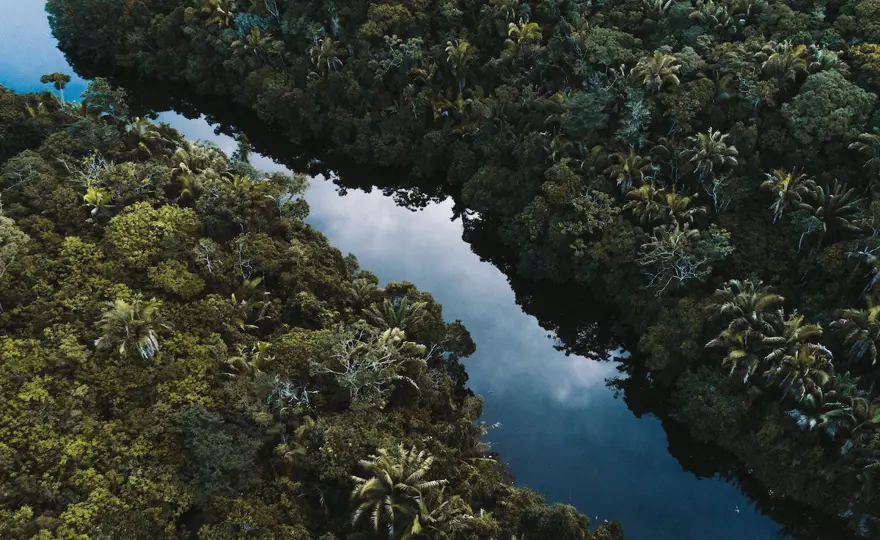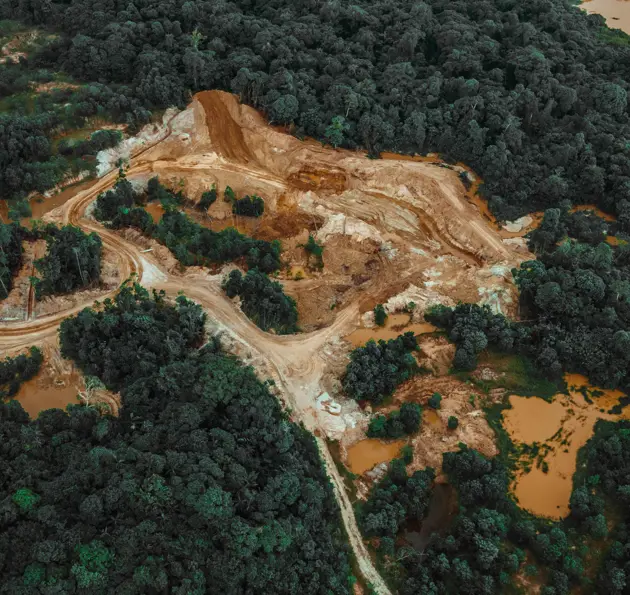ClientEarth Communications
5th December 2022


Countries within the European Union have agreed to a historic law that will stop products causing forest destruction from being sold in European shops and supermarkets. It is one of the biggest steps forward in the fight against deforestation yet. We explain why.
Human society and much of life on Earth cannot survive without healthy, thriving forests. But every two seconds, an area of forest the size of a football pitch is flattened. In 2021 alone, the world lost an area bigger than the entire United Kingdom - over 25 million hectares.
Production of just a handful of products is responsible for around 90% of this devastating loss. Forests are being cleared to make way for cattle farms to supply the world with beef and leather, while the rapid development of large-scale soy – mainly grown to feed chickens and pigs – as well as palm oil, cocoa, coffee, rubber, maize, and timber plantations are destroying natural forest landscapes and woodlands.
The EU consumes a lot of these products from places like Brazil, Indonesia, and the Ivory Coast. And it does so in volumes that make it one of the biggest importers of deforestation globally, second only to China.
The new EU law seeks to change that. It draws a powerful line for companies: if you want to sell your products in EU countries, you have to show that forests have not been bulldozed in order to produce them.
The aim is that products like wood, rubber, beef, leather, cocoa, coffee, palm oil and soy won’t make it past the port unless proven to be deforestation-free. This is to make sure that everyday items such as your morning cappuccino, afternoon chocolate biscuit, or beefburger ordered for dinner are not linked to deforestation.
The impact of these rules are expected to reach far across the world: the EU is the largest single market on Earth, served by the biggest agribusiness, commodity-trading and logging firms. Embedding due diligence practices and sourcing requirements in their operations are hoped to spark the structural transformation the world needs to bring its precious forests back from the brink.
To bring their products into the EU, companies will have to show exactly where they come from. In practice, this means providing the relevant GPS coordinates to authorities to prove the specific area has not been deforested.
Authorities are then required to carry out inspections on a certain percentage of operators and traders who import products to or export them from the EU market to ensure companies are telling the truth, checking cargo originating from countries with higher deforestation risk more frequently.
Unfortunately, after some EU governments succeeded in watering down these enforcement measures, the number of checks that national authorities will need to conduct on companies is much lower than the original proposal and much, much lower than the European Parliament wanted.
But, importantly, public enforcement of the law has been strengthened as it does allow for the public and civil society organisations to file concerns to enforcement agencies in EU member states when they deem that a company has not followed the rules.
This watchdog role of the public has been reinforced by providing them access to courts in order to challenge authorities when they have failed to properly handle concerns that have been submitted. This will also provide an avenue for Indigenous and local communities to present evidence and be heard when companies breach their obligations.
Although the law is a victory for forest protection, a people-sized hole is missing.
Protecting the rights of the Indigenous Peoples and local communities on the deforestation frontier goes hand in hand with preserving the rainforests and woodlands we have left. Overwhelming evidence shows that these communities are the best protectors of forests, and the 80% of biodiversity on land that they shelter.
But the EU has refused to include protection for internationally-recognised rights of Indigenous Peoples, instead relying on national laws in the countries where the products originate.
The problem with this is that in many producer countries there is no formal recognition of or security for Indigenous or customary land tenure rights. And where they do exist, the laws are often weak, patchy, or poorly enforced, and implementation can be heavily influenced by political interests.
Indigenous Peoples put their lives on the line to defend their forests against the destruction that European demand for forest-risk products is causing. They continue to face violent attacks from land-grabbers and loggers who encroach on their lands with impunity.
The EU’s flimsy approach to safeguarding their rights leaves communities at risk and wastes an opportunity to fully support the people that are risking their lives to save the forests that all our futures depend on.
The law is a historic step, but it’s not watertight. It ignores other critical ecosystems like savannahs and wetlands, and doesn’t extend the rules to companies’ financial backers.
This leaves the risk that nature destruction could just be pushed onto other unprotected landscapes that are equally critical in holding the balance of the natural world together, while overlooking a key player in its destruction: the financial sector.
The definition of what classifies as forest degradation when it comes to timber harvesting is also a concern. It does not cover large-scale clear-cutting of native forests unless the land is converted to another use, which means only a fraction of natural forests will be protected, disregarding objective scientific criteria.
The good news is that it is not case closed. Certain parts of the law will be reviewed and potentially extended at different milestones after the rules come into force.
The strength of this law has been the result of millions of voices standing against deforestation, hundreds of campaigning organisations pushing for strong legal rules, scientists, Indigenous activists and leaders, and prominent artists around the world pushing lawmakers to take bold action.
Civil society will keep demanding member states follow-up on their promises, implement the new law thoroughly and strengthen its rules in the review processes that have been agreed. We will continue to stand together for forests.
We spoke to forest defenders in Indonesia and Liberia to hear first-hand how their communities are being impacted by deforestation - and why it’s vital that EU law ensures them a route to protect the forests in court.
